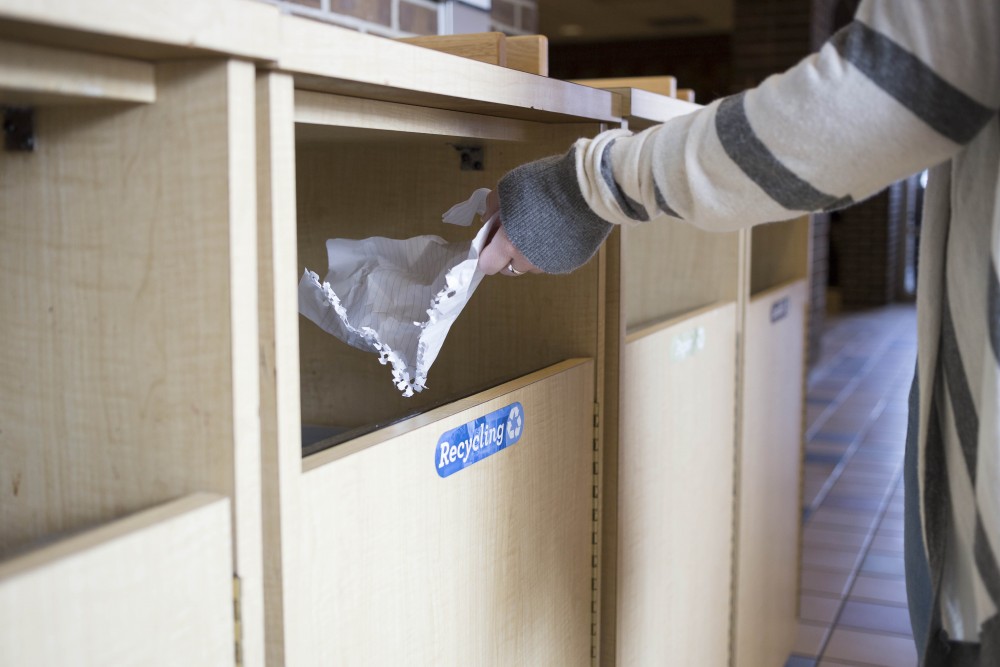GVSU strives for zero-waste football games

GVL / Sara Carte Brittany Patrosso recycles in the Kirkhof Center on Tuesday, November 1, 2016.
Nov 3, 2016
Everyday, Americans throw away the equivalent of 63,000 garbage trucks of trash, according to the Recycling Coalition of Utah. Of that, half of what they throw out could have been recycled. Instead, it’s taken to landfills where it sits and takes up space.
In effort to combat this, the Office of Sustainability Practices (OSP) and the facilities services department at Grand Valley State University sponsor ‘zero-waste’ football games throughout the year to promote the idea of reduced trash and increased composting and recycling.
“Our zero-waste football game initiative, in it’s entirety, is a partnership between our office and facilities services department to make sporting events, specifically football games, a zero-waste effort,” said Amanda Rodgers, graduate assistant for the OSP.
In order for something to be considered zero-waste, at least 90 percent of total garbage must be recyclable or compostable. In the past four years the duo has been promoting zero waste games, they have yet to hit the 90 percent threshold, the closest being 86 percent recyclable and compostable waste. This year, the highest percentage at a game was 74 percent recyclable/compostable waste.
“I would like to see it grow, and I thought maybe this would be the year, but it ended up not,” said Janet Aubil, operation supervisor for the facilities services department.
The zero-waste football games take place throughout the regular season, with emphasis on games that are going to have larger crowds, in order to get better numbers.
“Ideally, it would be great if we had, minimum, 40 volunteers a game,” Rodgers said. “That way we could split and do shifts because it’s a lot. It a lot of time commitment for one person to be there for the full game.”
Volunteers who assist with the zero-waste initiative are tasked with monitoring bins and helping people sort their garbage into compost, recyclable and landfill. At the end of the game, volunteers walk through the stands and pick up landfill and recycled items.
In order to get the percentage of recyclables/compost collected, each bag that is taken from the stadium has to be sorted to avoid contamination.
Rodgers says that if a student was monitoring a station there is less chance of contamination but it never hurts to check.
As of now, the zero-waste initiative stays primarily with football games but both Rodgers and Aubil expressed enthusiasm toward initiating zero-waste games at other sporting events and during tailgating prior to the start of football games.
The game against the Findlay Oilers Saturday, Oct. 29 was intended to be a zero-waste game, but it fell through when not enough volunteers could make it.
Even though the game didn’t end up being zero-waste, and the season not being as good as what she had hoped, Aubil is optimistic that things are only going to get better.
“We want to get higher obviously, and we will,” Aubil said. “When, I don’t know, but we will.”






















